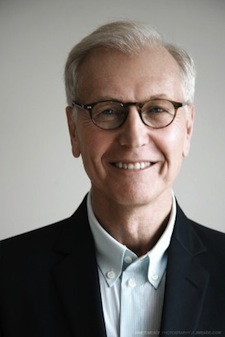Editor’s note: This week’s column on sex and relationships comes to us courtesy of Psychology Tomorrow, the website edited by Stanley Siegel, LCSW. I’m not sure I agree with all of the things he categorizes as “love”; yet I see his point. As we experience Mercury and the Sun conjunct Eris, we may find we have anger to express, process and embrace. — Amanda P.
By Stanley Siegel, LCSW
Anger, generally considered the most forbidden and primal of all emotions, is more accurately the most complex, nuanced, and misunderstood, particularly by mental health professionals.

Stanley Siegel, LCSW, editor in chief of Psychology Tomorrow.
Anger has positive psychological and social purposes that range from releasing negative sentiment to motivating us to find solutions — to correct wrong behaviors, challenge social injustice, and redress grievances. At times, we harness anger strategically with the goal of restoring emotional or social balance. In general, anger mobilizes our psychological resources and boosts determination.
How we perceive anger and the behavior associated with it is culturally and generationally determined. Experts have identified broad social factors that may be responsible for creating the climate in which anger may turn to violence, including poverty, income and gender inequality, and the overuse of alcohol and other substances. Because, as a society, Americans fear the loss of self-control through the “progression” of anger to violence, we have regulated it through laws, religious customs, therapies, medicines, and social punishment.
But, what most experts fail to understand is that the cultural and individual suppression of anger causes potentially greater harm.
When anger is ignored, denied, or repressed, it festers or flares, eventually finding expression through illness, poor judgment, passive-aggressive behavior, violence, suicide, or even terrorism. The classical definition of depression is anger turned inward.
Still, what may be even more shocking is the historical evidence suggesting as strong a relationship between violence and love as between violence and anger.
An honest look at love over the course of history reveals that what people have framed as the love of God, Monarch, Country, Money, and Power has led to more death and destruction than any single motivating emotion. The Crusades, Inquisition, WWII, and Middle East Holy Wars are high on this list of love and loyalty’s consequences. Although more benign, “romantic love” frequently leads to disillusionment, heartbreak, or despair, the source of much of our domestic violence or “crimes of passion.”
As a society we blindly ignore love’s darker side. We pursue love as if it were the holy grail, applauding its daily expression and even inventing holidays like Valentine’s Day and Mother’s and Father’s Days to acknowledge love’s loyalty. We engage in classes based on intimacy and love, which teach us to suppress or substitute anger with forgiveness, meditation or prayer. And with the assistance of trained professionals, we promote “anger management” courses or behavioral therapies that shame people for openly expressing anger and train them to use reason instead.
In effect, we are using “psychological treatments” that defy the natural laws of human emotion and unwittingly contribute to our overall sense of fear, confusion, and instability.
In fact, anger and love share the same purpose: to help resolve some of life’s difficult dilemmas. One is no less valuable than the other in that purpose, and both potentially have undesirable consequences. Anger helps us heal from an emotional injury or threat, real or imagined. And while love’s energy is directed toward finding wholeness through mutual exchange or coupling with another, in anger we seek wholeness by separating from the world. Anger ultimately serves to balance us. Through it we find affirmation and integrity as we attempt to restore our sense of well-being.
—————-
Stanley Siegel, LCSW, is a psychotherapist, author, international lecturer, and former Director of Education at New York’s renowned Ackerman Institute for Family Therapy. With over 36 years of experience, Siegel has developed an unconventional and highly regarded approach to psychotherapy. His latest book, Your Brain on Sex: How Smarter Sex Can Change Your Life is out now.


Excellent, really excellent. thank you for your insight
Hmmmm. I understand your comments about ‘love’ now Amanda. I was disappointed that he didn’t look at hierarchy, power imbalance, ownership, control and consumerism. I think these things influence anger and angry interaction more so than love, and are at the root of conquests and wars. It was a little bit of a disappointment that he didnt delve more deeply into the psychology and sociology of anger.